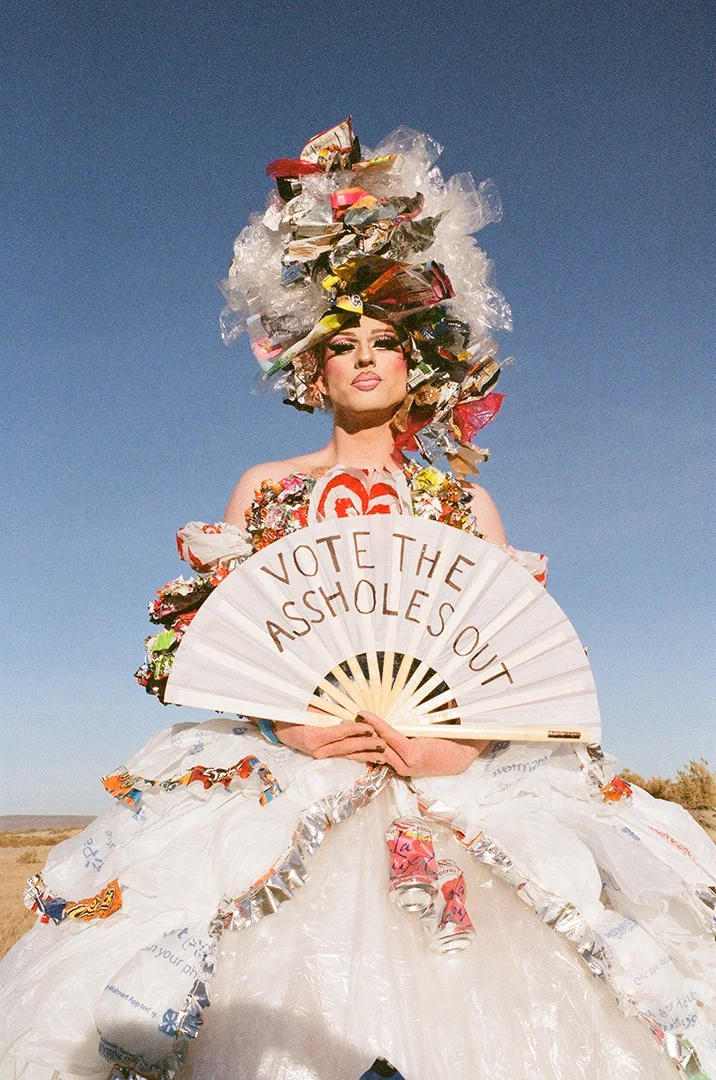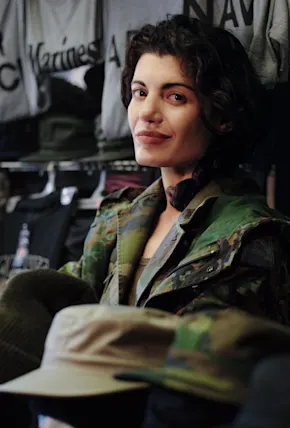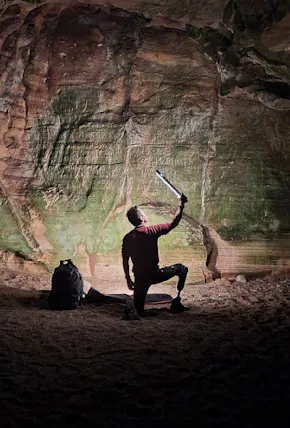While explaining the various steps of writing this article to friends, I realized the outdoorists I know could be split into two groups: those who heard me say "Patagonia" and pictured Yvon Chouinard's dirtbag-turned-industry-leading gear company, and those who heard "Pattie Gonia," the outdoor industry personality-slash-advocate-slash-influencer known for her queer approach toward protecting "Mother Natch." Pattie does tireless, collaborative, community-oriented climate and equity work and she doesn't do labels or binaries, meaning my attempts to explain her role to friends in the former group mostly fell short. Lucky for me, Wyn Wiley, the photographer from Nebraska who created Pattie during a backpacking trip in 2018, doesn't know how to describe it all, either.
In the four years since Pattie first strut down a trail, Wiley has jumped into the uncharted world of outdoor advocacy—creating job boards for queer outdoorists, partnering with brands to sponsor equity-focused events and organizations, joining climate panels, co-founding the community organization The Oath, and working with other organizers to divert capital resources towards communities that need them.
The more visible part—what Wiley calls "the cherry on top"—is what's online: colorful, messy social media pages filled with upcycled drag outfits, crowdsourced fundraisers, queer love, and a deeply empathetic approach toward bettering our outdoor spaces.
We recently hopped on Zoom with Wiley to talk about the intersection of the queer and outdoor spaces, maintaining a healthy relationship with social media, and the power of relation-driven change.

Photography by Karen Wang
How do you define this multifaceted leadership role that you've assumed in the outdoor community?
I don't know. Human being figuring it out the fuck out, just like the rest of us? I'm just trying to do what work I can with what's available in front of my face—trying to maximize it, make it the best damn thing it can be, and then move on. But there's no grand plan. There's no 'I figured out some magic thing.' It's literally just trying and failing and trying again.
The new environmental non-profit you're involved with, The Oath, is a community dedicated to creating the next generation of "radically empathetic decision makers." What was the thought process behind this approach?
I'm going to quote someone else that is far smarter than me here; my friend Pinar from Queer Nature says "the revolution is going to be relational," and that is something I live by all the time. I think it's relationship with ourselves, relationship with each other, and relationship to the other-than-human world. The success and growth of any environment is completely built on relationships being symbiotic, not parasitic. When we were forming the curriculum, it felt wrong to create something that was prescriptive and it felt right to make something that made people think for themselves.










